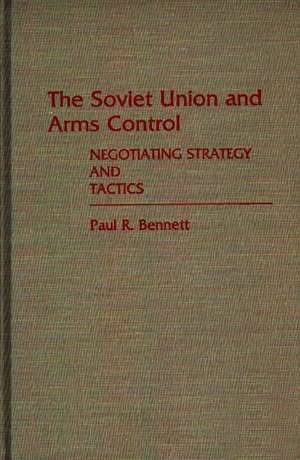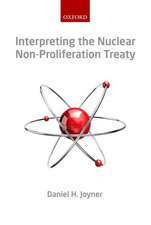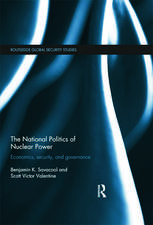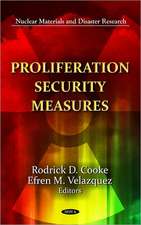The Soviet Union and Arms Control: Negotiating Strategy and Tactics
Autor Paul R. Bennetten Limba Engleză Hardback – 30 noi 1989
In an age of nuclear arms diplomacy, Westerners still lack a deep understanding of how the Russians negotiate. Much has been written about Soviet negotiating tactics--especially in light of the recent INF Treaty--but there has been no systematic way of analyzing the Soviet record. The Soviet Union and Arms Control provides a coherent, penetrating model for understanding Soviet negotiating tactics, strategies, and modes--based not merely on impressions but on carefully analyzed case studies. Through this analysis, Westerners can begin to understand the different types of Soviet negotiating behavior and the factors that influence Soviet decision-making.
This book systematically sorts and organizes the existing literature on Soviet tactics--supplemented by interviews with former U.S. negotiators--into a coherent theory. The book's first two chapters examine Soviet negotiating modes, strategies, and tactics and two different models of the Soviet process of decision-making. The final two chapters explore two case studies--The Brezhnev Era: SALT II, 1972-1974; and The Gorbachev Era: Nuclear and Space Talks, 1985-1988--that provide a practical test of the theories. These two case studies trace Soviet diplomacy stage-by-stage and issue-by-issue, demonstrating that internal politics in the Soviet Union has a lesser effect on negotiations than considerations of the Soviet national interest.
Preț: 436.73 lei
Preț vechi: 603.61 lei
-28% Nou
83.58€ • 90.75$ • 70.21£
Carte tipărită la comandă
Livrare economică 22 aprilie-06 mai
Specificații
ISBN-10: 0275931684
Pagini: 201
Dimensiuni: 156 x 234 x 13 mm
Greutate: 0.46 kg
Ediția:New.
Editura: Praeger Publishers
Descriere
This book systematically sorts and organizes the existing literature on Soviet tactics--supplemented by interviews with former U.S. negotiators--into a coherent theory. The book's first two chapters examine Soviet negotiating modes, strategies, and tactics and two different models of the Soviet process of decision-making. The final two chapters explore two case studies--The Brezhnev Era: SALT II, 1972-1974; and The Gorbachev Era: Nuclear and Space Talks, 1985-1988--that provide a practical test of the theories. These two case studies trace Soviet diplomacy stage-by-stage and issue-by-issue, demonstrating that internal politics in the Soviet Union has a lesser effect on negotiations than considerations of the Soviet national interest.
Notă biografică
PAUL R. BENNETT is Assistant Professor of International Relations at Mount Vernon College in Washington, D.C. He is a specialist in U.S.-Soviet relations and international security policy. Bennett also wrote Strategic Surveillance: How America Checks Soviet Compliance with SALT as well as two case studies of arms negotiations for the Pew Diplomatic Training Initiative.
















